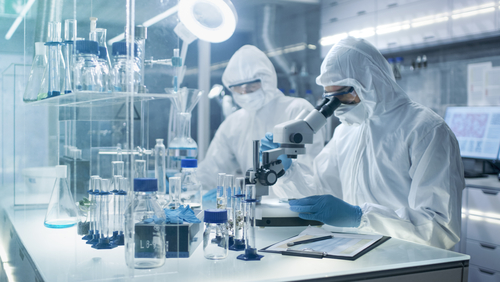
Researchers at the University of Colorado Boulder have discovered a chemical compound capable of working with natural bodily processes to break through antibiotic resistant bacteria and have published the results in the journal PLOS Pathogens.
Although attentions for many scientists have shifted to the COVID-19 pandemic raging across the world, molecular, cellular, and developmental biology professor Corrie Detweiler and her team remain focused on another threat that the pandemic will only exacerbate: antibiotic resistant bacteria. The paper published earlier this month revealed a compound that cooperates with natural immune responses to break cellular barriers helping bacteria resist antibiotics.
This could help create a new means of fighting a major public health threat.
“If we don’t solve the problem of finding new antibiotics or somehow making old antibiotics work again, we are going to see sharply increasing deaths from bacterial infections we thought we had beaten decades ago,” Detweiler said. “This study offers a totally new approach and could point the way toward new drugs that work better and have fewer side effects.”
The new paper focuses on JD1, a compound capable of infiltrating Gram-negative bacteria, which tend to be tough for antibiotics to breach. Unlike other drugs, JD1 latches onto a host’s initial immune assault on such bacteria’s outer membranes and then slips inside to attack the inner member too. In lab tests and rodent experiments, it successfully reduced survival. It spread Salmonella enterica, a Gram-negative bacteria, by 95 percent, although it couldn’t breach the fine layer of cholesterol lining the hosts’ cell membranes.
“Bacteria are vulnerable to JD1 in a way that our cells are not,” said Detweiler.
Translation: side effects would be minimal.
According to scientists, the alternative is that unchecked antibiotic resistant bacteria could kill approximately 10 million people annually by 2050. Already, 35,000 people die annually from resistant bacterial infections in the United States alone. These are even making normally routine cases, such as strep throat, urinary tract infections, and pneumonia, life-threatening.
“As our existing antibiotics adapt and work less, we risk essentially going back to a period 100 years ago, when even a minor infection could mean death,” said Detweiler.
COVID-19’s rise has brought with it a heightened use of antibiotics. Detweiler and others worry that this could bring increasing resistance, even if they are necessary. Things have not been helped by the fact that development has stagnated — most current antibiotics were developed in the 1950s, and most pharmaceutical companies have emphasized profit over research. For this reason, Detweiler believes, it’s more important now than ever to pursue alternative treatments.
She and her team have created the SAFIRE technique and formed a spin-off company to do exactly that.




